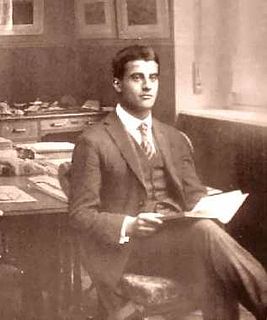A Quote by Simin Behbahani
I've stood in long lines, in the rain and under the sun, just to buy a pack of butter or a box of paper napkins. I've seen mothers running after the corpses of their martyred sons, oblivious to whether their headscarves or their chadors or their stockings and shoes were slipping off or not. I won't say any more. In the light of all this, how did you expect my poetry to be joyful or, as in my recent poem, to speak of love? Even so, more than half of my poetry is joyful and these are the products of the moments when I've felt happy.
Quote Topics
After
Any
Box
Butter
Buy
Corpses
Did
Even
Expect
Felt
Half
Happy
Headscarves
How
Joyful
Just
Light
Lines
Long
Long Line
Long Lines
Love
Martyred
Moments
More
Mothers
Napkins
Oblivious
Off
Pack
Paper
Poem
Poetry
Poetry Is
Products
Rain
Recent
Running
Say
Seen
Shoes
Slipping
Sons
Speak
Stockings
Stood
Sun
Than
Were
Whether
Related Quotes
Joy is not a constant. It comes to us in moments - often ordinary moments. Sometimes we miss out on the bursts of joy because we're too busy chasing down the extraordinary moments. Other times we're so afraid of the dark we don't dare let ourselves enjoy the light. A joyful life is not a floodlight of joy. That would eventually become unbearable. I believe a joyful life is made up of joyful moments gracefully strung together by trust, gratitude and inspiration
That's one of those questions that would just love to have a pat answer. You know, poetry's job is to make us feel good. Poetry exists to allow us to express our innermost feelings. There isn't one role for poetry in society. There are many roles for poetry. I wrote a poem to seduce my wife. I wrote a poem when I asked her to marry me. Poetry got me laid. Poetry got me married.
I think you can perform any poem. But what I believe is that the best examples of spoken word poetry I've ever seen, are spoken word poems that, when you see them, you're aware of the fact they need to be performed. That there's something about that poem that you would not be able to understand if you were just reading it on a piece of paper.
My own experience as a reader and writer has been that the more I read, and the more I live, the more different "types" of poetry I grow to love. I might not even believe anymore that there are "types" of poetry at all. I've come to love things I once would snootily have dismissed. Of course I still have my likes and dislikes, and there are things I think are just plain old bullshit, but more and more I am far more trusting of my loves than my dislikes.
You ask me whether I am in good spirits. How could I not be so? As long as Faith gives me strength I will always be joyful. Sadness ought to be banished from Catholic souls... the purpose for which we have been created shows us the path; even if strewn with many thorns, it is not a sad path. It is joyful even in the face of sorrow.
What I've always wished I'd invented was paper underwear, even knowing that the idea never took off when they did come out with it. I still think it's a good idea, and I don't know why people resist it when they've accepted paper napkins and paper plates and paper curtains and paper towels-it would make more sense not to have to wash out underwear than not to have to wash out towels.
I'm educating myself more about world poetry. I know a lot about contemporary American poetry, so I felt I needed to learn more about figures like Borges, Akhmatova, Neruda, etc. I felt I needed a bigger lens to see poetry through. It really helps to see poetry as a world language, and not just something American.
I would read the Shel Silverstein poems, Dr. Seuss, and I noticed early on that poetry was something that just stuck in my head and I was replaying those rhymes and try to think of my own. In English, the only thing I wanted to do was poetry and all the other kids were like, "Oh, man. We have to write poems again?" and I would have a three-page long poem. I won a national poetry contest when I was in fourth grade for a poem called "Monster In My Closet.
I kept as still as I could. Nothing happened. I did not expect anything to happen. I was something that lay under the sun and felt it, like the pumpkins, and I did not want to be anything more. I was entirely happy. Perhaps we feel like that when we die and become a part of something entire, whether it is sun and air, or goodness and knowledge. At any rate, that is happiness; to be dissolved into something complete and great. When it comes to one, it comes as naturally as sleep.
A successful poem says what a poet wants to say, and more, with particular finality. The remarks he makes about his poems are incidental when the poem is good, or embarrassing or absurd when it is bad and he is not permitted to say how the good poem is good, and may never know how the bad poem is bad. It is better to write about other people's poetry.
I have taught the long poem off and on for years. The more book-length poems I read and studied and taught the more interested I was in the possibilities in writing a poetry that applied formal and substantive options of narrative and non-narrative, lyric and non-lyric. I found many pleasures in this kind of writing. The long poem is as old as the art form.







































